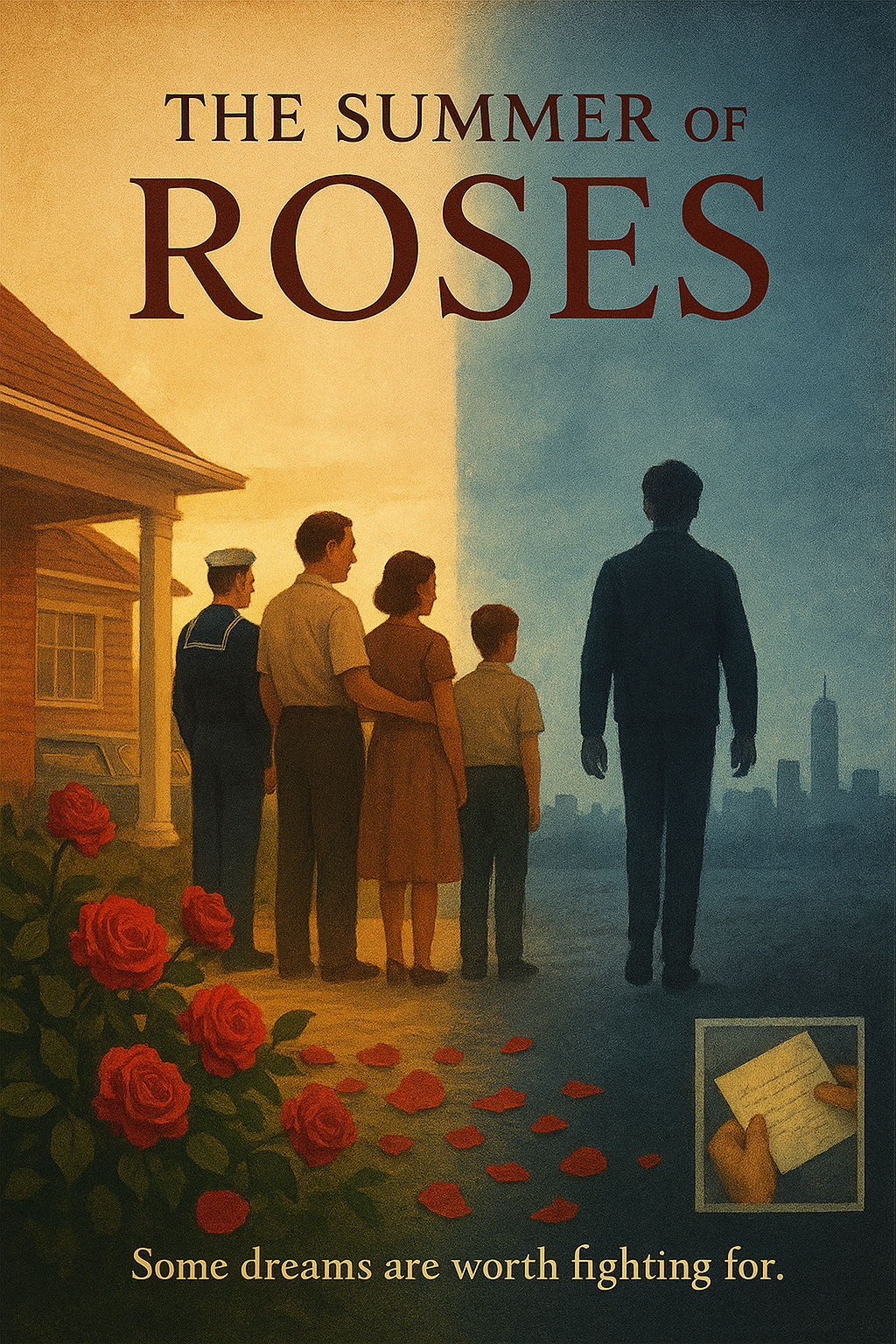The Summer of Roses - a stage play by Alan Brody
When a brilliant 16-year-old boy is offered a scholarship to an elite school for gifted students, his overprotective mother sabotages his teacher and battles his father to keep their family intact during the Korean War summer of 1952.
The Summer of the Roses, a two-act family drama set in 1952 suburban Philadelphia, explores the tensions between protecting family unity and nurturing individual potential against the backdrop of the Korean War and McCarthyism.
Sixteen-year-old Tom Miller is a mathematically gifted teenager who feels isolated at his average high school. His teacher, Miss Williams, administers a special test and discovers Tom qualifies for the prestigious Boyd School in New York City with a full merit scholarship. However, Tom keeps this secret from his parents, knowing his mother Florence would refuse to let him go.
The family dynamics are further complicated by the return of Tom's older brother Gus, a naval officer on leave before his Korean War deployment. Florence, still traumatized by World War II and now facing another war taking her eldest son, cannot bear the thought of losing Tom as well. When Gus betrays Tom's confidence about the school opportunity, Florence explodes, declaring that Tom will never leave home.
The central conflict deepens when Florence, threatened by Miss Williams' influence over Tom, secretly reports the teacher to the school principal as a communist sympathizer, resulting in Williams' firing. This betrayal devastates Tom and creates a rift with his father Les, who had been secretly funding Tom's continued tutoring with Williams at his jukebox distribution warehouse.
Les faces his own crisis when his business partner Dominick demands he fire half his crew for higher profits, forcing him to confront his own compromised integrity. The parallel struggles of father and son - both caught between loyalty and principle - form the play's emotional core.
The climax comes when Tom discovers his mother's role in destroying Miss Williams' career and his father's business compromises. Feeling betrayed by everyone he trusted, Tom initially loses faith in his family. However, Les finally finds the courage to stand up to both Florence and Dominick, choosing to send Tom to the Boyd School despite Florence's opposition.
The play concludes with Tom's departure for New York, having learned painful lessons about adult complexity and moral compromise, while Florence is left alone to face her fears of abandonment and change. The roses that bloom and fade throughout the summer serve as a metaphor for the fleeting nature of childhood and the inevitable passage of time that forces families to evolve or break apart.
The drama captures the post-war American middle-class struggle between conformity and individual expression, family loyalty and personal growth, set against the paranoid atmosphere of early 1950s McCarthyism.

